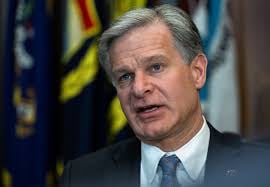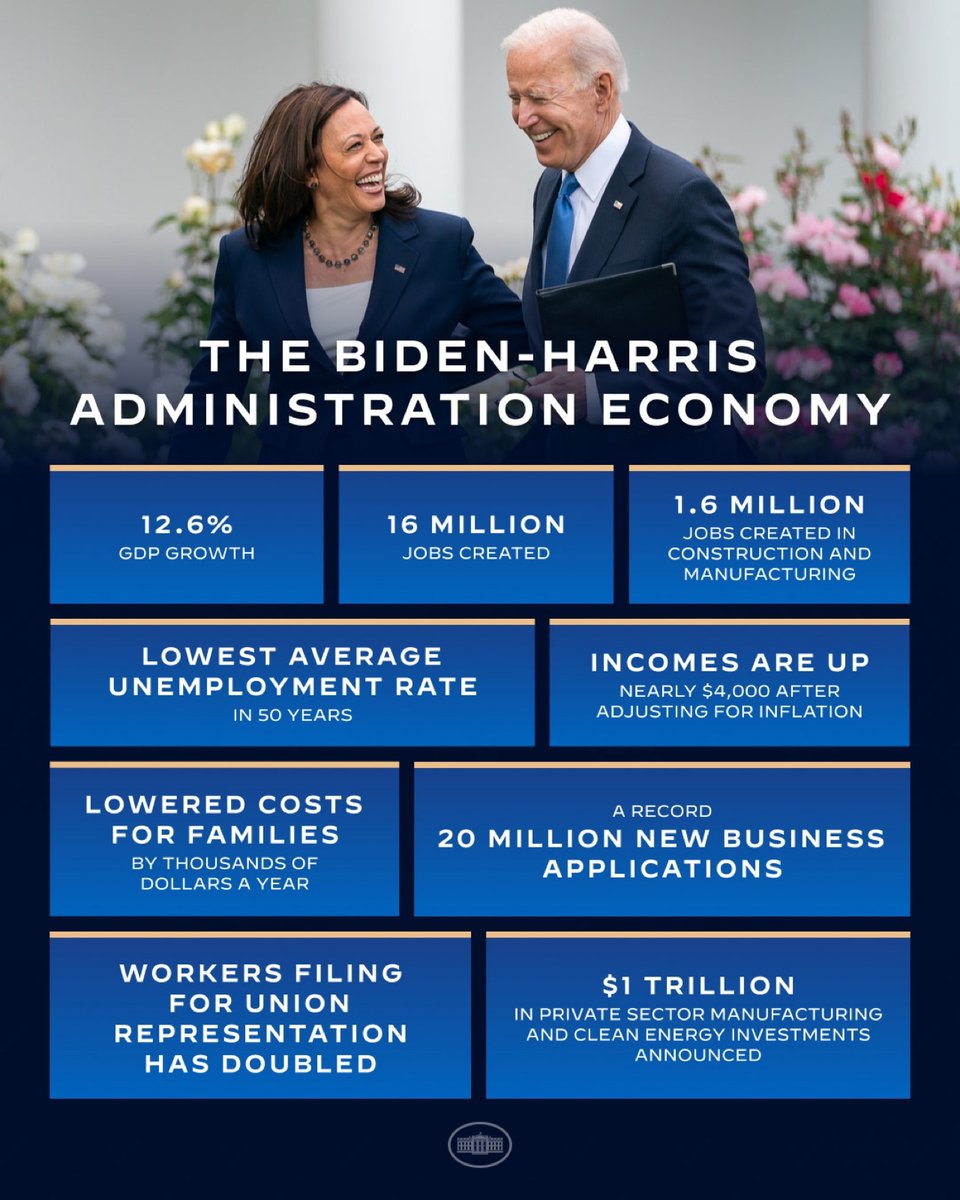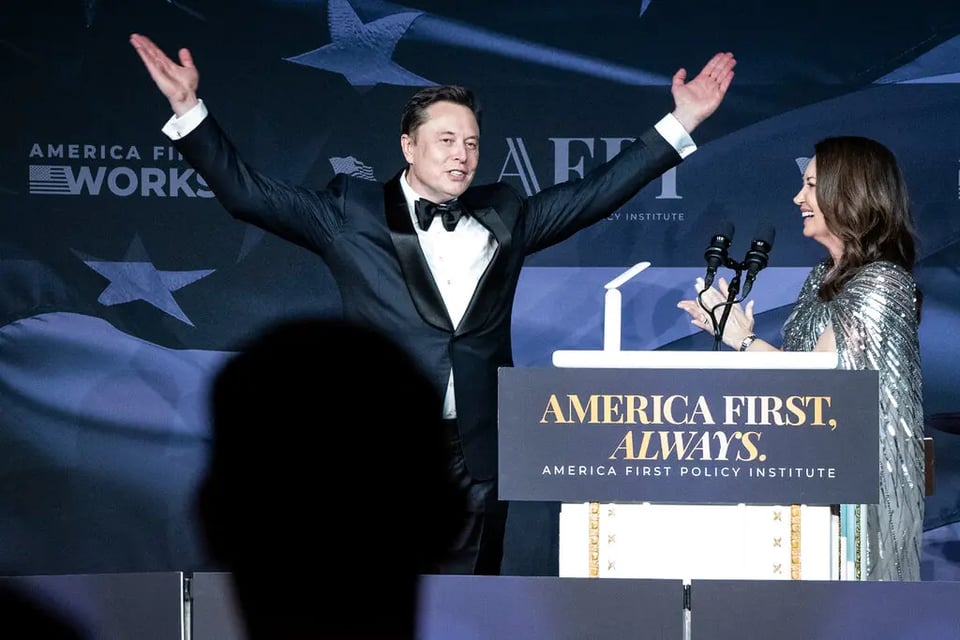Friday, December 13, 2024. Annette’s News Roundup.
I would be so happy if David French is right.👇
Did Christopher Wray Just Defy Donald Trump?

On Wednesday, Christopher Wray told his F.B.I. colleagues that he would step down as director by the end of President Biden’s term. His statement was a perfect example of bureaucratic deference. “I’ve decided the right thing for the bureau is for me to serve until the end of the current administration in January and then step down,” Wray said. He wants to “avoid dragging the bureau deeper into the fray, while reinforcing the values and principles that are so important to how we do our work.”
But is something else going on?
By stepping down now, as the conservative writer Erick Erickson observed, Wray has created a “legal obstacle to Trump trying to bypass the Senate confirmation process.”
Here’s why. According to the Vacancies Reform Act, if a vacancy occurs in a Senate-confirmed position, the president can temporarily replace that appointee (such as the F.B.I. director) only with a person who has already received Senate confirmation or with a person who’s served in a senior capacity in the agency (at the GS-15 pay scale) for at least 90 days in the year before the resignation.
Kash Patel, Donald Trump’s chosen successor at the F.B.I., meets neither of these criteria. He’s not in a Senate-confirmed position, and he’s not been a senior federal employee in the Department of Justice in the last year. That means he can’t walk into the job on Day 1. Trump will have to select someone else to lead the F.B.I. immediately, or the position will default to the “first assistant to the office.”
In this case, that means the position would default to Paul Abbate, who has been the deputy director of the F.B.I. since 2021, unless Trump chooses someone else, and that “someone else” cannot be Patel, at least not right away.
The bottom line is that the Senate has to do its job. Wray is foreclosing a presidential appointment under the Vacancies Reform Act, and — as I wrote in a column last month — the Supreme Court has most likely foreclosed the use of a recess appointment to bypass the Senate.
So a resignation that at first blush looks like a capitulation (why didn’t he wait to be fired?) is actually an act of defiance. It narrows Trump’s options, and it places the Senate at center stage. In Federalist No. 76, Alexander Hamilton wrote that the advice and consent power was designed to be “an excellent check upon a spirit of favoritism in the president, and would tend greatly to prevent the appointment of unfit characters.”
Patel is just such an “unfit character,” and now it’s senators’ responsibility to protect the American republic from his malign influence — if, that is, they have the courage to do their jobs. (David French, Column, New York Times).
Joe is always busy.
Still true.
White House Press Secretary Karine Jean-Pierre said that President Biden issued "categorical pardons to individuals convicted of simple use and possession of marijuana, and to former LGBTQI+ service members convicted because of their sexual orientation."
JUST IN: President Biden commuted the sentences of 1,500 Americans who were placed in home confinement during the pandemic and pardoned another 39 people in what the White House said is the record for clemency in a single day. https://t.co/jbPCPub9bG
— Axios (@axios) December 12, 2024
Yesterday [Wednesday], President Joe Biden spoke at the Brookings Institution, where he gave a major speech on the American economy. He contrasted his approach with the supply-side economics of the forty years before he took office, an approach the incoming administration of Donald Trump has said he would reinstate. Biden urged Trump and his team not to destroy the seeds of growth planted over the past four years. And he laid out the extraordinary successes of his administration as a benchmark going forward.
The president noted that Trump is inheriting a strong economy. Biden shifted the U.S. economy from 40 years of supply-side economics that had transferred about $50 trillion from the bottom 90% to the top 1% and hollowed out the middle class.
By investing in the American people, the Biden team expanded the economy from “the middle out and the bottom up,” as Biden says, and created an economy that he rightfully called “the envy of the world.” Biden listed the numbers: more than 16 million new jobs, the most in any four-year presidential term in U.S. history; low unemployment; a record 20 million applications for the establishment of new businesses; the stock market hitting record highs.
Biden called out that in the two years since Congress passed the Inflation Reduction Act and the CHIPS and Science Act, the private sector has jumped on the public investments to invest more than a trillion dollars in clean energy and advanced manufacturing.
Disruptions from the pandemic—especially the snarling of supply chains—and Russian president Vladimir Putin’s attack on Ukraine created a global spike in inflation; the administration brought those rates back to around the Fed’s target of 2%.
Biden pointed out that “[l]ike most…[great] economic developments, this one is neither red nor blue, and America’s progress is everyone’s progress.” (Heather Cox Richardson, Letters from an American, Thursday, Dec. 12,2024.).

North Carolina Republicans are trying to stop Democracy but we are winning that battle.
🚨BREAKING: In a vote split mostly along party lines, the North Carolina State Board of Elections (NCSBE) on Wednesday rejected GOP Supreme Court candidate Jefferson Griffin’s bid to invalidate tens of thousands of ballots statewide. https://www.democracydocket.com/news-alerts/as-recount-starts-north-carolina-supreme-court-gop-candidate-challenges-60k-ballots/
— Marc Elias (@marcelias.bsky.social) 2024-12-11T22:44:38.954Z
Imposing tariffs may be harder than Trump expects.
Trump faces tariff red tape

Social media posts don't carry the force of law, even when they're from a soon-to-be president. That is a reality to keep in mind in assessing how and when the incoming Trump administration will enact new tariffs.
Why it matters: Presidents have expansive power over trade policy — but that power is derived from specific legal provisions that dictate multistep processes for deploying that power.
That means that businesses may not face the overnight imposition of large-scale tariffs but instead have time to prepare their supply chains, and the opportunity to seek exclusions for goods they have no choice but to import — at least, to the extent President-elect Trump follows his first-term trade playbook.
Flashback: In Trump's previous term, authority for tariffs came from Sections 201 and 301 of the Trade Act of 1974, allowing the president to target practices by trade partners that hurt U.S. businesses, and Section 232 of the Trade Expansion Act of 1962, on national security grounds.
Each statute describes a process for how the authority can be invoked.
For example, Section 301, which both the Trump and Biden administrations have used to target Chinese goods, requires that the Office of the U.S. Trade Representative complete an investigation that includes consultation with the foreign government involved and allows U.S. interest groups to comment.
This detailed report from the Congressional Research Service spells it out.
Biden announced the expansion of Section 301 tariffs on China in May, and USTR received more than 1,100 public comments, leading to several changes.
Some of the tariffs went into effect this past September, but some are not scheduled to take effect until 2026.
Of note: Jamieson Greer, a trade lawyer and Trump's nominee for U.S. trade representative, is well-versed in the importance of following the legal processes laid out by the relevant laws, as opposed to shooting from the hip.
Over the summer, Greer spoke to JPMorgan clients about what to expect from a Trump 2.0 trade policy, and the bank's economics team released excerpts of his comments this month.
Greer said that "the Trump administration was very good about having public hearings, taking on comments, letting people rebut comments and going through the required process."
"Now we are in a situation where there are a lot of legal tools to allow the President to exercise a lot of authority over import regulation," he said, according to the research note. "We also have a lot of jurisprudence now very recently saying Trump was allowed to do what he did."
The incoming administration may want to move more quickly and explore options that involve more speed — but also more legal questions.
State of play: One approach, Cato Institute trade scholar Scott Lincicome tells Axios, would be to elect not to start a new Section 232 or 301 case, but to adjust rates on existing tariffs.
"The current measures could be quickly 'modified' to change tariff rates or product coverage — and courts have signed off on that broadly," he says, such as by increasing tariffs on Chinese products already covered by Trump-Biden policies.
Section 232 tariffs on steel could be modified to cover Mexican imports or expanded to other steel products, he adds.
Trump could also try to use laws with fewer procedural restrictions, particularly the International Emergency Economic Powers Act, which gives the president powers over commerce in times of national emergency.
It grants the president power in response to an "unusual and extraordinary threat."
The bottom line : Corporate supply chain managers will have a busy next four years trying to adapt to higher trade barriers — but how quickly they will have to react depends on whether Trump turns to his first-term trade playbook or pushes boundaries further. (Axios)
Criminal Monkey see, criminal Monkey do.

In 2018, Trump was forced to close his foundation which he misused for business and political purposes. Trump paid $2 million in fines for illegally misusing charitable funds, pleaded to 19 counts of malfeasance, and his 3 oldest kids had to take a mandatory course in not being thieves.
In shutting the Foundation down, New York State attorney general, Barbara Underwood said, "The Trump Foundation acted less like a charity and more like Trump’s ‘personal piggy bank.’'
Time to turn to Elon Musk's Foundation, don't you think?
Musk’s Foundation Gave Away Less Money Than Required in 2023

Private foundations must donate 5 percent of their assets every year. Elon Musk’s enormous charity missed that standard for three consecutive years.
For the third year in a row, Elon Musk’s charitable foundation did not give away enough of its money.
And it did not miss the mark by a small amount.
New tax filings show that the Musk Foundation fell $421 million short of the amount it was required to give away in 2023. Now, Mr. Musk has until the end of the year to distribute that money, or he will be required to pay a sizable penalty to the Internal Revenue Service.
Mr. Musk, in his new role as a leader of what President-elect Donald J. Trump is calling the Department of Government Efficiency, is promising to downsize and rearrange the entire federal government — including the I.R.S. But the tax records show he has struggled to meet a basic I.R.S. rule that is required of all charity leaders, no matter how small or big their foundations.
Mr. Musk's is one of the biggest. His foundation has more than $9 billion in assets, including millions of shares in Tesla, his electric vehicle company. By law, all private foundations must give away 5 percent of those assets every year. The aim is to ensure that wealthy donors like Mr. Musk use these organizations to help the public instead of simply benefiting from the tax deductions they are afforded.
Mr. Musk’s group has fallen further and further behind. In 2021, his foundation was $41 million short, then $234 million the following year. Now, the hole is deeper still.
Private foundations do have a way to solve the problem if they do not give away enough money. They can distribute more the following year as a make-good. Mr. Musk could choose to do so in 2024.
Mr. Musk did not respond to requests for comment. His foundation, which is required to make its tax filings public, provided the 2023 document to The New York Times.
The I.R.S. appears to be among Mr. Musk’s early targets as a leader of Mr. Trump’s government efficiency initiative. The tax agency serves as the federal government’s charity regulator and thus oversees Mr. Musk’s foundation.
Last month, Mr. Musk used X, his social media platform, to ask users if the I.R.S.’s budget should be increased, kept the same, decreased or “deleted.” His followers chose “deleted.”
The IRS just said it wants $20B more money.
— Elon Musk (@elonmusk) November 27, 2024
Do you think it’s budget should be:
Mr. Musk, who on Wednesday became the first person with a net worth of over $400 billion, has been an unusual philanthropist. He has been critical of the effectiveness of large charitable gifts, and his foundation maintains a minimal, plain-text website that offers very little about its overarching philosophy. That is different from some other large foundations that seek to have national or even worldwide impact by making large gifts to causes like public health, education or the arts.
The Musk Foundation’s largess primarily stays closer to home. The tax filings show that last year the group gave at least $7 million combined to charities near a launch site in South Texas used by Mr. Musk’s company SpaceX.
Other large charitable foundations have also failed to distribute the I.R.S.’s minimum required amount in recent years, sometimes by more than $100 million, according to tax filings compiled by the company CauseIQ, which analyzes charity data.
But Mr. Musk’s foundation is unusual even among those, both for the amount of its shortfall and the speed at which it is increasing. In 2022, the last year for which full data is available, the Musk Foundation had the fourth-largest gap of any private foundation in the country, according to CauseIQ data.
Mr. Musk’s charity, which he founded in 2002, has never hired paid employees, according to tax filings.
Its three directors — Mr. Musk and two people who work for his family office — all work for free. The filings show they did not spend very much time on the foundation: just two hours and six minutes per week for the past three years.
But the board’s task grew enormously in 2021 and 2022, when Mr. Musk tripled the foundation’s assets by giving it billions of dollars’ worth of Tesla stock. Tax experts said if he claimed those donations on his personal taxes in the year given, those gifts would have been very beneficial to him.
Because of the deductions allowed for charitable gifts, they potentially saved Mr. Musk as much as $2 billion on his tax bills.
Because of the skyrocketing growth in assets, the three-person board had to give away hundreds of millions of dollars per year just to meet the minimum. That group entered 2023 needing to pay off the previous year’s $234 million shortfall, or they would have to pay a penalty tax of 30 percent on whatever was left over at the end of the year.
The foundation met that, giving away a total of $236 million and avoiding the penalty.
But it also had to give away another $424 million to meet its obligation for 2023. The filings show it did not come close, leaving an even bigger deficit to make up this year.
“The distributions made by the foundation are meeting the bare minimum to avoid penalties,” said Brian Mittendorf, an accounting professor at the Ohio State University who studies nonprofits. “It is clear that the organization is not in a hurry to spend its money.”
In 2023, as in other years, many of the foundation’s gifts went to organizations that were closely tied to Mr. Musk or his businesses. In 2023, for instance, he gave $25 million to a donor-advised fund, a separate charitable account over which Mr. Musk retains effective control.
Mr. Musk began donating to schools in the Brownsville, Texas, area just after his company’s reputation took a major hit: One of its rockets exploded, showering the area with twisted metal.
The foundation’s largest gift for the year — $137 million in cash and stock — went to a nonprofit called The Foundation. That charity, run by Mr. Musk’s close associates, has set up a private elementary school in Bastrop, Texas. The school is a short distance from large campuses operated by Mr. Musk’s businesses and a 110-home subdivision planned for his employees.
Dr. Mittendorf noted that Mr. Musk gave that school $102 million on Dec. 28 — days before the deadline to give away the unspent millions from the year before.
The Musk Foundation’s gifts for 2023 gave little hint of the political transformation that would follow this year, as he spent hundreds of millions of dollars to support Mr. Trump’s presidential campaign. Throughout 2023, Mr. Musk became increasingly right-wing in his public statements, especially on issues like crime and immigration.
But his foundation’s only gift with an apparent political tilt was a small one: The Musk Foundation gave $100,000 to a libertarian think tank in Utah. (New York Times)
Well, soon Friday the 13th will be gone. I will see you next on Monday, December 16th, a certain Eve Ellis' birthday, a lucky day for me. Have a good weekend.